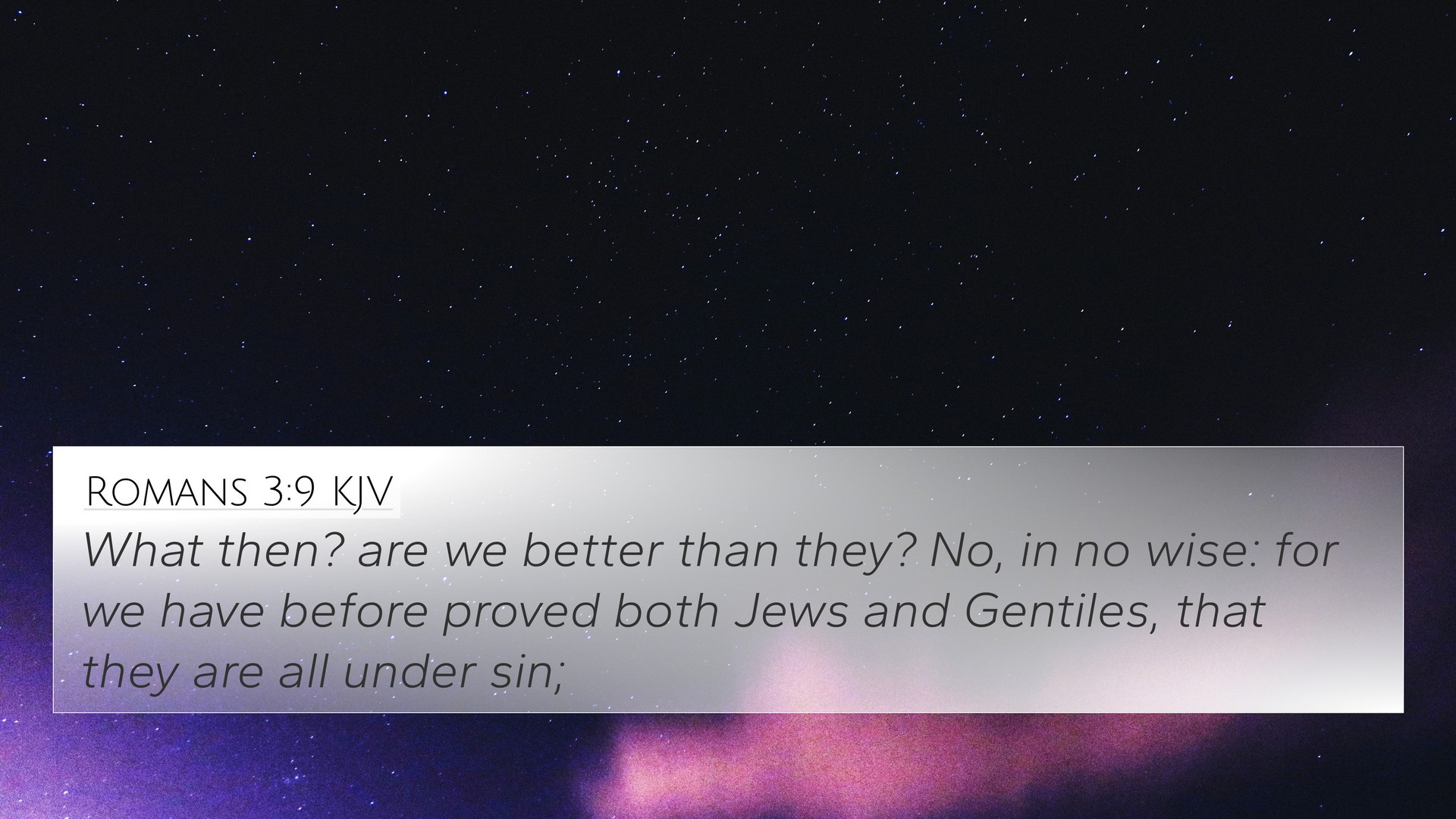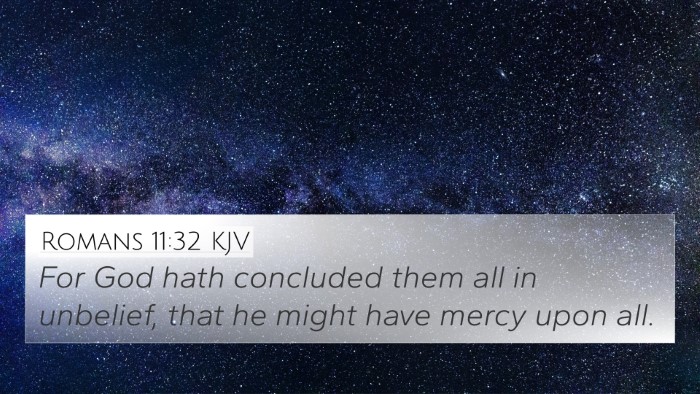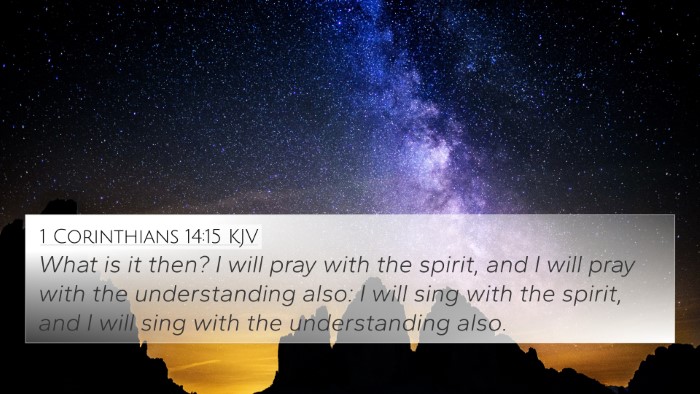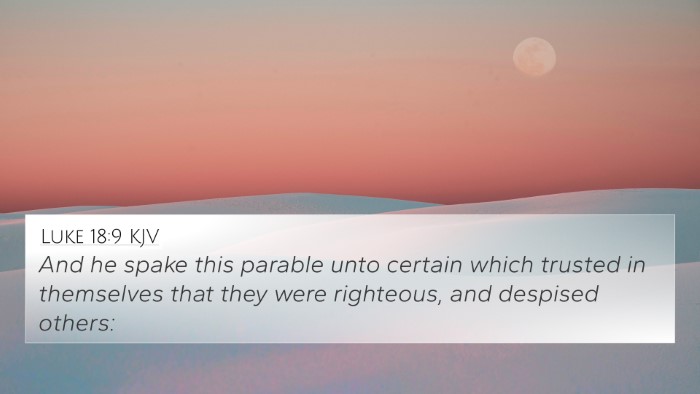Romans 3:9 states: "What then? Are we better than they? No, in no wise: for we have before proved both Jews and Gentiles, that they are all under sin." This verse encapsulates a critical theological principle that emphasizes the universal condition of sinfulness among all humanity. It serves to equalize both Jews and Gentiles in their spiritual standing before God, asserting that no one is inherently righteous or superior due to their ethnicity or religious affiliation.
Summary of the Verse's Meaning
The Apostle Paul poses a rhetorical question about the superiority of Jews over Gentiles. His answer is definitive – both groups are equally guilty of sin. This conclusion arises after a detailed discourse on sin that includes various Old Testament scriptures, highlighting the need for a savior. This statement is crucial in the context of Paul's argument that faith in Christ is the only basis for righteousness, devoid of ethnic or moral distinctions.
Insights from Commentaries
-
Matthew Henry:
Henry explains that Paul is emphasizing the equal need for salvation among all people, irrespective of their background. The universal nature of sin is highlighted, and he stresses that God's grace is necessary for all, transcending all boundaries of race and tradition.
-
Albert Barnes:
Barnes points out that this verse serves as a conclusive statement regarding the condition of both Jews and Gentiles. He notes that previous arguments have laid the foundation for this conclusion, which echoes the sentiments found in the prophetic writings of the Old Testament.
-
Adam Clarke:
Clarke discusses the implications of the term "under sin," indicating that it denotes a state of captivity to sin’s power. He reinforces the idea that both Jews and Gentiles have erred and thus require the same salvation, illustrating the need for Jesus Christ as the remedy for sin.
Bible Verse Cross-References
To understand Romans 3:9 fully, several other Bible verses provide valuable context and cross-reference:
- Psalm 14:3: "They are all gone aside, they are together become filthy: there is none that doeth good, no, not one."
- Isaiah 53:6: "All we like sheep have gone astray; we have turned every one to his own way; and the Lord hath laid on him the iniquity of us all."
- Galatians 3:22: "But the scripture hath concluded all under sin, that the promise by faith of Jesus Christ might be given to them that believe."
- Romans 3:23: "For all have sinned, and come short of the glory of God."
- 1 John 1:8: "If we say that we have no sin, we deceive ourselves, and the truth is not in us."
- Romans 2:12: "For as many as have sinned without law shall also perish without law: and as many as have sinned in the law shall be judged by the law."
- James 2:10: "For whosoever shall keep the whole law, and yet offend in one point, he is guilty of all."
Connections Between Bible Verses
Romans 3:9 effectively draws connections between various biblical texts, showcasing a thematic relationship centered around the concept of sin and the need for redemption.
These cross-references provide a deeper understanding of humanity's condition and the necessity of relying on Jesus Christ for redemption. Each supporting verse echoes themes of sinfulness and the gospel's power to save, reiterating that all who believe are on equal standing before God, irrespective of their past.
Thematic Bible Verse Connections
-
Universal Sinfulness: This connects the idea that all humanity, both Jews and Gentiles, grapple with sin (Romans 3:23, 1 John 1:8).
-
Grace and Redemption: Illustrates that salvation is not achieved through works of the law, but only through faith (Galatians 3:22).
-
Need for Christ: Many verses point to the necessity of Christ's atoning sacrifice (Isaiah 53:6, Romans 2:12).
Cross-Referencing Biblical Texts
Understanding Romans 3:9 and its themes allows readers to appreciate the broader narrative of the Bible regarding sin and redemption. Utilizing tools for Bible cross-referencing, believers can enrich their study and enhance their understanding of linked scriptures.
By employing a robust cross-reference Bible study method, one can draw parallels between the Old and New Testaments. These links elucidate how prophets' teachings anticipate the apostolic messages and emphasize the continuity of God's revelation throughout scripture.
How to Use Bible Cross-References
Readers seeking to explore cross-references can utilize Bible concordance tools or a Bible reference resource to identify related passages. Understanding the connections between Bible verses can significantly enhance one's study and comprehension of biblical truths.
Engaging with cross-reference Bible study leads to a richer appreciation of scripture, illuminating the interconnectedness and continuing dialogue throughout the biblical narrative.
Conclusion
Romans 3:9 challenges believers to reflect on the universality of sin and the profound need for salvation. As we explore its meaning through various commentaries and cross-references, we uncover the foundational truths of the Christian faith that bind all believers together in the necessity of grace through faith in Christ.


















